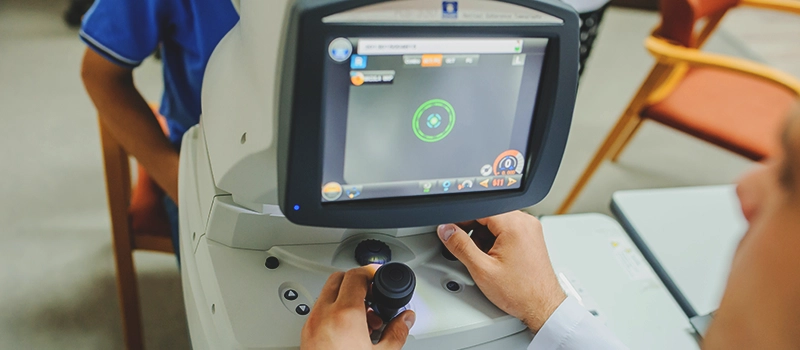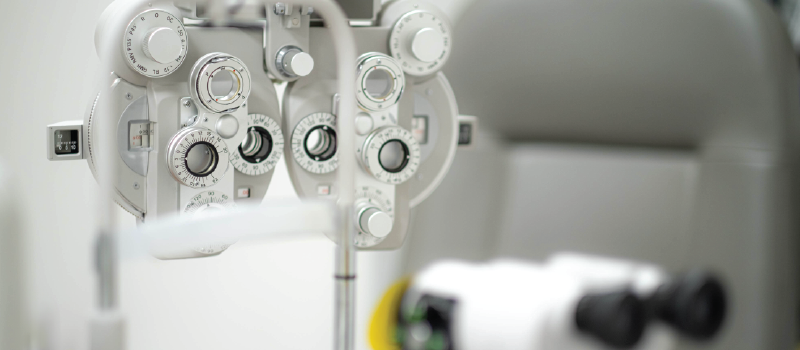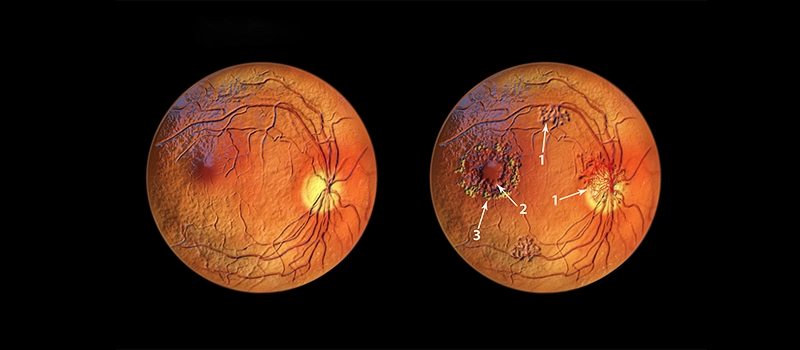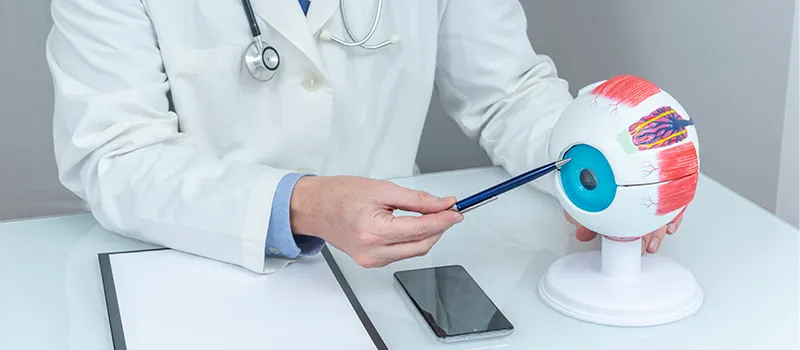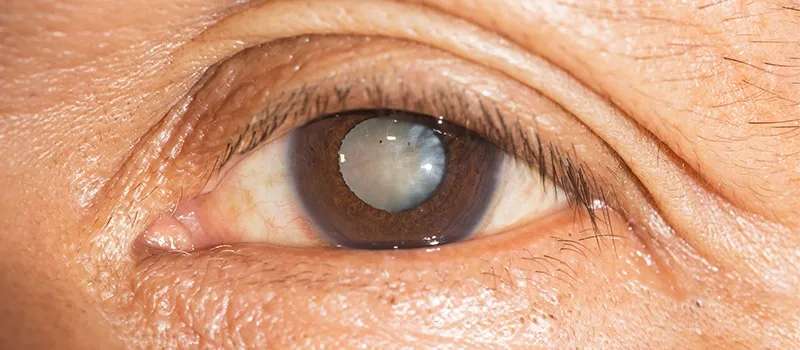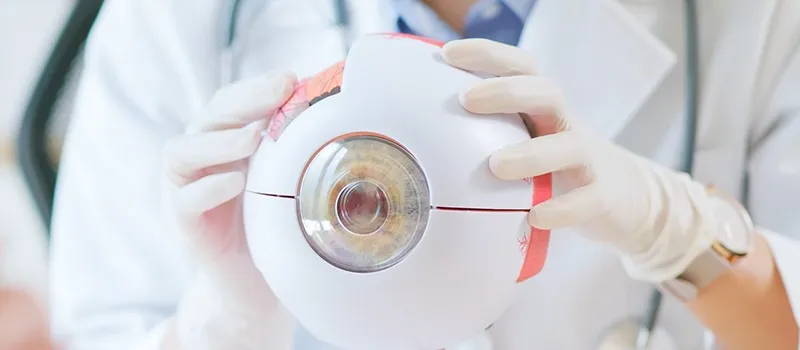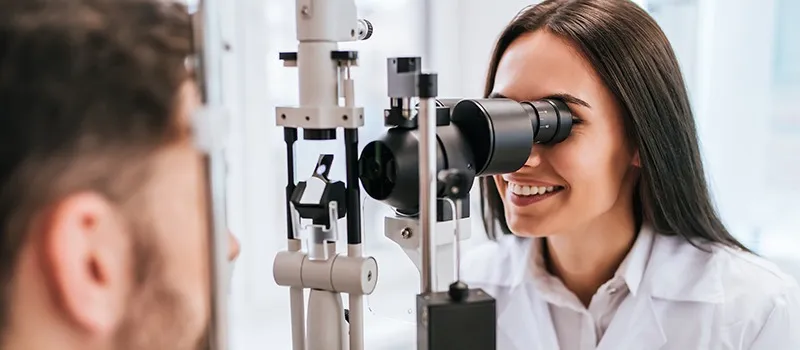
DigiNerve’s Online Ophthalmology Course for MBBS Students
Ophthalmology is a medical specialty that focuses on the diagnosis and treatment of eye diseases and their complications. Ophthalmology, once considered a minor discipline, has recently expanded to include a variety of subspecialties such as the cornea, pediatric ophthalmology, ocular oncology, glaucoma, ocular pathology, and neuro-ophthalmology.
Studying ophthalmology according to the previous syllabus made it difficult for students to figure out which topics they should emphasize more, how to organize their studies, what practical aspects/skills to know and acquire, and so on. The new CBME Curriculum focuses on core competencies and outlines the learning domain as well as the depth to which a concept should be explored. The AETCOM Module, which stands for Attitude Ethics and Communication, defines the competencies on which the curriculum is built. This is in place to ensure that graduates have the skills they need to meet patients’ needs in society.
DigiNerve’s Ophthalmology for UnderGrads has been conceptualized and designed in accordance with the new CBME curriculum. The aim is to help MBBS students get conceptual clarity and farewell in university exams as well as PG entrance exams. Dr. Parul Ichhpujani and Dr. Talvir Sidhu, the eminent faculty for this course, have addressed all of the subject’s essential aspects in their CBME-oriented Ophthalmology Course. This is one of the best online ophthalmology courses since it aims to provide students with specific competencies more effectively.
Some of the major books authored by Dr. Parul Ichhpujani are “Expert Techniques in Ophthalmic Surgery”, “Clinical Cases in Glaucoma: An Evidence-Based Approach”, and “Manual of Glaucoma”, while Dr. Talvir Sidhu is renowned for her book “Gonioscopy: A Text and Atlas” and “Gonioscopy: A video-assisted Skill Transfer Approach” (includes interactive DVD-ROM).
The faculty has covered the art of studying ophthalmology in order to prepare students for theory, practical, and NEET PG examinations. The orientation video itself provides them with a road map to approach the subject. This online ophthalmology course is designed to help MBBS students in strengthening the basics of Ophthalmology by providing them with advanced clinical vignettes. This provides clinical orientation to the subject.
Each topic includes an overview of the anatomy and physiology of that part, which will serve as a refresher for students. It will also assist them in comprehending the aetiology of various disorders, as well as providing a full description of how each ailment would manifest on ocular inspection. In this Online Ophthalmology Course, basic history-taking and clinical examination of the eye are demonstrated as an extended lecture to provide students with a full overview. The lectures are well-illustrated with clinical and radiological pictures, as well as flowcharts, tables, and boxes to enhance the visual memory of the students.
The Course Includes:
- Video Lectures: 21+ hrs of video lecture series that give you an edge over others.
- Lecture Notes: 33 lecture notes including simple advanced-case vignettes to enhance knowledge during preparation.
- Clinical Case-Based Discussion: The course includes various practical case scenarios which are usually not given in textbooks.
- Self-Assessment Questions: 1000+ practice questions are provided with relevant explanations
DigiNerve’s Ophthalmology for UnderGrads- Table of Content
Ocular Examination
Basic History And Ocular Examination
Visual acuity
Vision assessment
Refractive Errors
Extraocular muscles and Ocular motility
Strabismus to Amblyopia
Extraocular Muscles -Strabismus
Nerve Palsies
Lids and Adnexa
Lid and Adnexal Disorders-1
Lid and Adnexal Disorders-2
Orbit
Proptosis, Orbital Cellulitis and Cavernous Sinus Thrombosis
Orbital Tumors
Conjunctiva
Red Eye by
Conjunctival Disorders
Cornea
Corneal Ulcer: Bacterial and Fungal
Corneal Ulcer: Viral
Eye donation and Eye banking
Sclera
Scleritis and Episcleritis
Anterior chamber and Uvea
Anterior Chamber
Uveitis
Primary Open Angle Glaucoma
Lens
Anatomy and Physiology
Cataract: History, Examination and Consent
Cataract: Diagnosis & Planning Surgery
Cataract Surgeries
Retina
Basics of Fundus Examination
Vascular Occlusions of Retina
Hypertensive & Diabetic Retinopathy
Retinal Detachment by
Management Modalities for Retinal Disorders
Optic Nerve
Diseases of Optic Nerve
Miscellaneous
National Programme for Control of Blindness and Visual Impairment (NPCB & VI) and Vision 2020
Ocular Trauma
Visual Rehabilitation in the Elderly
How to Study Ophthalmology?
Study from Reliable Resources: The new CBME curriculum stresses key competencies and outlines the learning domain as well as the level at which a subject must be learned. As a result, students must concentrate on locating the most relevant and reliable content which is as per the latest curriculum.
Watch Clinical Case Discussions: The online Ophthalmology course on DigiNerve is ideal for gaining conceptual clarity through clinical case discussions. This course was designed and developed in accordance with the new CBME curriculum. It comprises an extended presentation that includes a demonstration of basic history-taking and clinical examination of the eye to provide students with a full overview.
Practise from Exam POV: To receive maximum exposure for your university exams and NEET PG Exam, practise as many questions as possible.
Learn from best mentors: Find popular study resources by specialists who cover the art of studying ophthalmology as well as content as per theory, practical, and NEET PG exams. It’s helpful if your professor provides you with a strategy for approaching the subject.
Study Ocular Examination in depth: In each chapter, focus on anatomy and physiology, as well as the pathophysiology of various diseases, and a full explanation of how each condition would appear on the ocular examination. To strengthen your memory, look for clinical and radiological images, as well as flowcharts, tables, and boxes, wherever they are needed.
How to Study Ophthalmology for NEET PG?
When preparing for NEET-PG, it is essential to study from the appropriate books. Students are frequently enticed by texts that promise shortcuts. As the candidate approaches the subject, such books have a negative impact on their psychology. Therefore, referring to recommended books is critical, as these books help students to dodge doubts.
Some of the most important topics in Ophthalmology are:
- Lens – Surgeries, Ectopia lentis, Cataract, and related concepts, their complications, and solutions are very important. You should also be well-versed in the Anatomy and Physiology of lens.
- Cornea – Anatomy and Physiology, Keratitis, Congenital Anomalies of Cornea, and Cornea Degeneration
- Conjunctiva – Conjunctivitis, Trachoma, Vernal Keratoconjunctivitis, Phlyctenular Conjunctivitis, Dry Eye, Pterygium, and Pinguecula.
- Glaucoma – POAG, PACG, Secondary Glaucoma, and Surgeries and Drugs
- Orbit – Blunt Trauma, Orbit Fracture, Orbit Tumors, Proptosis, and Chalcosis
- Eye – Surgeries, and Ptosis (Measurement and Causes)
- Lacrimal – Epiphora, and Dacryocystitis Treatment
- Retina – CRVO, CRAO, CME, CSR, Diabetic Retinopathy, ARMD, Retinoblastoma, Retinitis Pigmentosa, BEST, Stargardt Disease, Coats Disease, Retinoscopy, Ophthalmoscope, and ROP
- Optics – Criteria, Definitions and Types of Refractive Error, Surgeries, and Contact Lens
- Neuro-Ophthalmology – Pathway, Reflex, Papillitis, Papilledema, Toxic Amblyopia, Squint, and Optic Neuritis
- Community Ophthalmology – NBCP & Xerophthalmia
Scope of Studying Ophthalmology
- Cataract Specialists or Surgeons: These are professionals who perform surgery to remove the natural lens and replace it with an artificial lens in order to alleviate the patient’s problem of opacity or blurred vision.
- Neuro-Ophthalmology Specialist: An expert in this profession deals with eye disorders related to the neurological system. Some serious concerns, such as optic nerve abnormalities impacting visibility, trouble controlling eye movement, double vision, and so on, require rapid treatment from a Neuro-Ophthalmologist. A specialist who is a master of Ophthalmology is essential for the study of both neurology and ophthalmology.
- Retina Specialists: These professionals deal with issues affecting the Retina. These issues are usually caused by injury or damage to the retina, which can occur as a result of retinal detachment, abrupt flashes, or floaters.
- Cornea Specialist: This expert is responsible for providing treatments and surgeries to address any damage, illness, or disease that affects the human eye’s Cornea, Conjunctiva, Eyelids, and Sclera. They must take preventative actions to prevent additional harm and to recover the injury that is affecting the patient’s vision.
- Oculoplastics Specialists: They are specialists who work to repair and remodel the eye. They deal with eyelid surgery and abnormalities in the orbit and lacrimal system, as well as disorders in the area surrounding the eyeball.
- Pediatric Ophthalmologist: Professionals in this discipline deal with any ocular problem that affects children’s eyes. Strabismus, genetic abnormalities, amblyopia, neoplastic disorders, conjunctivitis, and misalignment of the eyes are some of the primary significant problems that Pediatric Ophthalmologists treat.
- Ocular Immunology Specialist: The specialist’s job is to control issues with the human body’s immunology, which can lead to a variety of eye-related illnesses and diseases. Corneal ulcers, uveitis, sclerosis, and any sort of eye inflammation are examples of these illnesses. These specialists collaborate closely with general practitioners.
Additional jobs to choose from are Professor/Lecturer, ENT Specialist, Clinical Assistant, and Medical Consultant.
FAQs
1 – What’s the difference between an optometrist and an ophthalmologist?
Patient’s eyes are examined, diagnosed, and treated by optometrists. Ophthalmologists are doctors who specialize in the medical and surgical treatment of eye diseases.
2 – Is being an ophthalmologist a good career choice?
Ophthalmology is a nice blend of surgical and medical practise, and many people can focus on either of these. Those interested in surgery will need time to adjust to this microsurgical field, but with the correct instruction, anyone with basic hand-eye coordination can master it.
3 – Does ophthalmology have any scope for the future?
According to the Health Resources and Services Administration, by 2025, there will be a demand for about 22,000 ophthalmic surgeons. However, it was predicted that more than 6,000 physicians would fall short of the requirement.
4 – Is ophthalmology a simple subject to learn?
It is regarded as one of the most difficult branches to study and practise, requiring complete dedication as well as knowledge and developed skills. This branch of medicine is characterized by a variety of extraordinary traits.
5 – How do I go about becoming an ophthalmologist after completing my MBBS?
One must first obtain an MBBS degree and then pursue post-graduate studies in Ophthalmology to become a competent Ophthalmologist.
Related post
